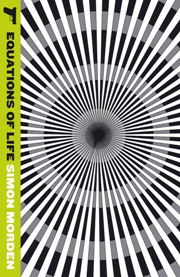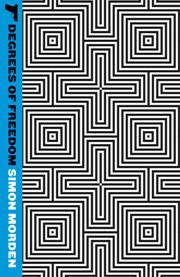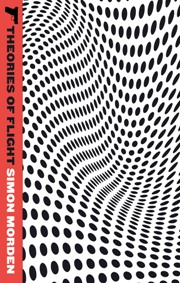When I was young, and I mean really young, my mother caught me reading the newspaper. That I could was just one of those things, like having brown hair and sticky-out teeth. I’m reliably informed it was something to do with the Rhodesia crisis (something you kids will have to look up for yourselves) – what it was isn’t important, but the fact of reading early, and apparently spontaneously, is. Fast forward a few years, and we’d moved towns and schools. So while most of my classmates were ploughing through their graded Ladybird books, I was pretty much left to my own devices. I have no recollection of what I read then. All sorts of stuff probably. But I do remember this: at some point (I must have been about nine) I was shown a rack of books and told to choose one, it didn’t matter which.
 One in particular caught my eye. It had a man in a spacesuit on the cover which, as a child fascinated by the Apollo missions, was a big draw. And that was pretty much it for the next thirty-odd years. That book (and I’ve finally tracked it down – the 1976 Puffin edition of Spaceship Medic, by Harry Harrison) quite literally changed my life. Soon I was on the hard stuff: Clarke, Asimov, the Heinlein juveniles. Anderson. Pohl. Herbert. Aldiss. Anything with a spaceship on the front, and these were the days when Bob Foss was king – those spaceships were huge.
One in particular caught my eye. It had a man in a spacesuit on the cover which, as a child fascinated by the Apollo missions, was a big draw. And that was pretty much it for the next thirty-odd years. That book (and I’ve finally tracked it down – the 1976 Puffin edition of Spaceship Medic, by Harry Harrison) quite literally changed my life. Soon I was on the hard stuff: Clarke, Asimov, the Heinlein juveniles. Anderson. Pohl. Herbert. Aldiss. Anything with a spaceship on the front, and these were the days when Bob Foss was king – those spaceships were huge.
What fed my peculiar addiction was that my mum used to help run the village WI jumble sales. Before the doors had opened, the book stall had been scoured and any likely candidates picked off and paid for. Now – my mum’s not exactly a speculative fiction fan: she was going on the look of the book. (more…)
 From the acclaimed author of Mr. Shivers comes a gripping tale of murder and intrigue set in an America that never was. The Company Man, Robert Jackson Bennett’s second novel, takes place in an alternate early twentieth century America. Part steampunk, part murder mystery, part horror, Robert’s writing is truly unique and original. The Guardian recently had this to say about The Company Man:
From the acclaimed author of Mr. Shivers comes a gripping tale of murder and intrigue set in an America that never was. The Company Man, Robert Jackson Bennett’s second novel, takes place in an alternate early twentieth century America. Part steampunk, part murder mystery, part horror, Robert’s writing is truly unique and original. The Guardian recently had this to say about The Company Man:











 One in particular caught my eye. It had a man in a spacesuit on the cover which, as a child fascinated by the Apollo missions, was a big draw. And that was pretty much it for the next thirty-odd years. That book (and I’ve finally tracked it down – the 1976 Puffin edition of Spaceship Medic, by Harry Harrison) quite literally changed my life. Soon I was on the hard stuff: Clarke, Asimov, the Heinlein juveniles. Anderson. Pohl. Herbert. Aldiss. Anything with a spaceship on the front, and these were the days when Bob Foss was king – those spaceships were huge.
One in particular caught my eye. It had a man in a spacesuit on the cover which, as a child fascinated by the Apollo missions, was a big draw. And that was pretty much it for the next thirty-odd years. That book (and I’ve finally tracked it down – the 1976 Puffin edition of Spaceship Medic, by Harry Harrison) quite literally changed my life. Soon I was on the hard stuff: Clarke, Asimov, the Heinlein juveniles. Anderson. Pohl. Herbert. Aldiss. Anything with a spaceship on the front, and these were the days when Bob Foss was king – those spaceships were huge. When you write a book, you’re only ever showing the important bits. Seems obvious, right? The boring stuff, the stuff that isn’t intimately bound in the narrative, the stuff that doesn’t just leap off the page, or drive home some essential truth about your characters or the world they live in, you leave out*. But it’s still there, in a way.
When you write a book, you’re only ever showing the important bits. Seems obvious, right? The boring stuff, the stuff that isn’t intimately bound in the narrative, the stuff that doesn’t just leap off the page, or drive home some essential truth about your characters or the world they live in, you leave out*. But it’s still there, in a way. Starting this April, Orbit will be publishing brand-new original short fiction written by our authors as eBooks. The stories will be available at all major eBook retailers – initially in the US, further afield in the very near future.
Starting this April, Orbit will be publishing brand-new original short fiction written by our authors as eBooks. The stories will be available at all major eBook retailers – initially in the US, further afield in the very near future.